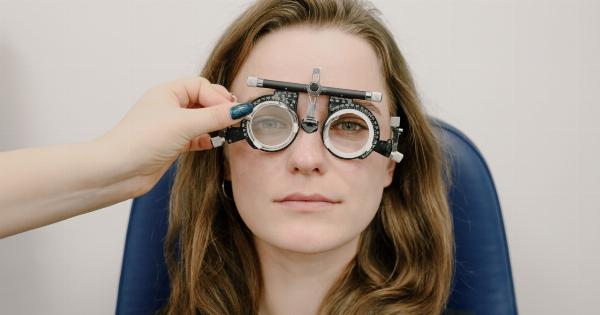Mental health treatment in hospitals has long been a topic of concern and debate, with many calling for reform to improve the quality of care for patients.
One political party that has been particularly vocal in advocating for change is the Panhellenic Socialist Movement (PASOK) in Greece. With a focus on social justice and equal access to healthcare, PASOK has put forth various initiatives and proposals to address the deficiencies in mental health treatment within hospital settings.
1. The Current State of Mental Health Treatment in Hospitals
Before delving into PASOK’s push for reform, it is essential to understand the existing challenges and shortcomings in mental health treatment within hospitals.
In many cases, individuals with mental health issues are admitted to general hospital wards, which are ill-equipped to provide specialized care. The lack of trained mental health professionals, limited resources, and inadequate infrastructure further contribute to subpar treatment outcomes.
2. PASOK’s Initiatives for Mental Health Reform
PASOK has been at the forefront of advocating for reform in mental health treatment within hospitals.
Their initiatives aim to improve access to specialized care, enhance training for healthcare professionals, and establish comprehensive community-based support systems. Some key proposals put forth by PASOK include:.
3. Integrating Mental Health Services into General Hospitals
PASOK advocates for the integration of mental health services into general hospitals to ensure that patients receive holistic care.
This involves establishing dedicated psychiatric units within hospitals, equipped with the necessary facilities and staffed by mental health professionals. By integrating mental health services, patients can benefit from a multidisciplinary approach, where physical and mental health needs are addressed simultaneously.
4. Increasing the Number of Mental Health Professionals
PASOK recognizes the importance of having an adequate number of mental health professionals in hospitals to meet the growing demand for services.
They propose increasing the recruitment of psychiatrists, psychologists, psychiatric nurses, and other mental health specialists. By enhancing the workforce in this field, patients can receive timely and specialized care, leading to improved treatment outcomes.
5. Strengthening Training Programs for Healthcare Professionals
Another crucial aspect of PASOK’s reform agenda is the emphasis on training programs for healthcare professionals. They propose enhancing the curriculum for medical and nursing students to include comprehensive mental health education.
By equipping healthcare professionals with the necessary knowledge and skills, they can better identify and address mental health issues in hospital settings.
6. Establishing Comprehensive Community-Based Support Systems
PASOK recognizes that mental health treatment should not solely be limited to hospitals but should extend into community settings.
They advocate for the establishment of comprehensive community-based support systems, including outpatient clinics, day centers, and rehabilitation services. These facilities would provide ongoing support to individuals with mental health issues, promoting their recovery and enabling them to lead fulfilling lives.
7. Addressing Stigma and Discrimination
An integral part of PASOK’s push for mental health reform is addressing the stigma and discrimination surrounding mental illness. They propose launching public awareness campaigns to challenge stereotypes and promote understanding.
By reducing the social stigma associated with mental health, individuals are more likely to seek help and receive appropriate treatment without fear of judgment or marginalization.
8. Allocating Sufficient Resources for Mental Health Services
PASOK advocates for increased funding and resource allocation to ensure the provision of quality mental health services in hospitals. This includes investing in infrastructure, equipment, and medication necessary for effective treatment.
By adequately funding mental health services, hospitals can provide a higher standard of care, ultimately benefiting patients and improving treatment outcomes.
9. Collaboration with International Organizations and Experts
PASOK recognizes the need for international collaboration and expertise to drive mental health reform.
They propose establishing partnerships with international organizations, such as the World Health Organization (WHO), to learn from best practices adopted globally. By leveraging the expertise of international experts, Greece can develop a robust and evidence-based approach to mental health treatment in hospitals.
10. Conclusion
Mental health treatment in hospitals is an urgent matter that requires immediate attention and reform.
PASOK’s push for change through various initiatives focuses on improving access to specialized care, increasing the number of mental health professionals, strengthening training programs, establishing community-based support systems, combating stigma, allocating sufficient resources, and collaborating with international organizations. It is essential for these reform efforts to be implemented to ensure that individuals with mental health issues receive the care they deserve and require for a healthier future.




























